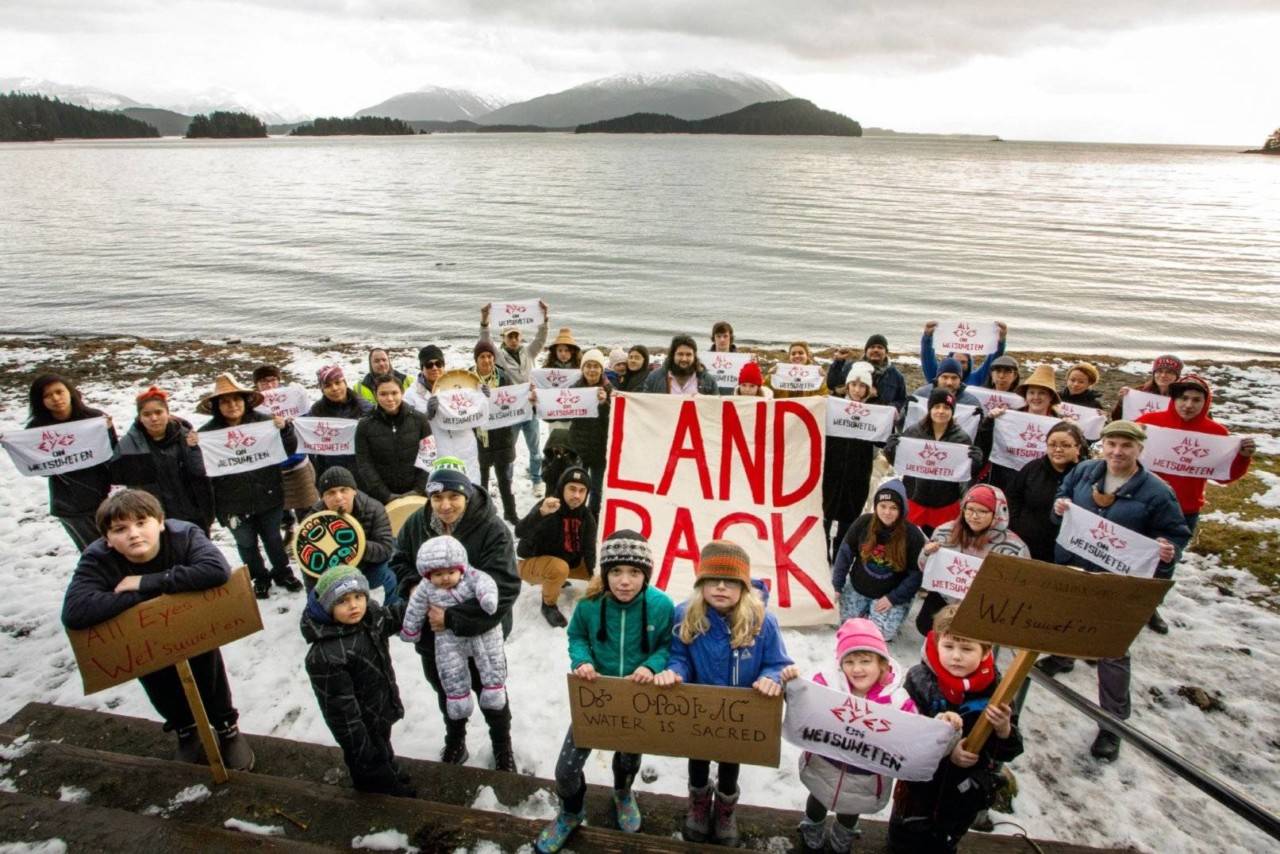Feb. 10 was an international day of solidarity with the Wet’suwet’en First Nation in Canada. Although most of the world has never heard of Wet’suwet’en, Wet’suwet’en cares deeply about the future of our world. Since 2009 they have blocked fossil fuel exports across their territory at their Unist’ot’en camp. By exercising their indigenous sovereignty, they have prevented untold amounts of CO2 emissions from warming our climate and acidifying our oceans. Although they are under constant pressure to give in, they have proven so effective at blocking irresponsible pipelines that Canadian companies are looking at another route to punch through their dangerous pipelines: Southeast Alaska.
An international fracked gas company is seeking permits to analyze two islands in the Misty Fjords National Monument, and in the traditional sovereign territory of the Saanya Kwaan, for a fracked gas liquefaction plant. The full impact of such a plant can’t be known yet, but it will inevitably be large and harmful to the natural wildlife of the area. My family has been traveling to this region to find cleaner water for our subsistence harvests since cruise ship dumping has worsened in the last few years. So close to the old Fort Tongass and Cape Fox village sites, will we allow a Canadian infrastructure project to put our heritage at risk?
But the greatest threat from this project is its contribution to the climate crisis. Our congressional delegation, especially U.S. Sen. Lisa Murkowski, knows that climate change is impacting Alaska at twice as hard as the Lower 48, and they must act on it. Alaska would be better served by federal investment in renewables and clean energy technology than by permitting of such a carbon intensive project in a national wilderness. If our elected leaders really want to build energy independence in rural communities, they ought to be supporting bills that empower communities to transition to clean renewables, not facilitating dirty energy projects like the Ketchikan LNG terminal.
I am grateful to the Unis’ot’en camp and the Wet’suwet’en First Nation for the sacrifices they have made to protect our earth, and they are in need of our support. But to fully honor their work, we must honor it everywhere, first of all in our own territories, by rejecting this LNG project that threatens our climate and our way of life.
Carrie James Dodson
Ketchikan
DOT being clear wouldn’t make a difference
This is in regards to the comment quoted in the Feb. 4 Empire that Sen. Bert Stedman was critical of the DOT for not making the maintenance needs of the AMHS more clear to the Legislature. In light of extreme budget cuts to the AMHS, the $25 million maintenance money removed a year ago, then the 75% cut, partially vetoed. I think everyone knew how dire it was. Would making it more clear by DOT have made any difference? If one starves a dog to death, does the blame go to the dog for not saying it was hungry?
Dave Nussbaumer
Haines
• Columns, My Turns and Letters to the Editor represent the view of the author, not the view of the Juneau Empire.
